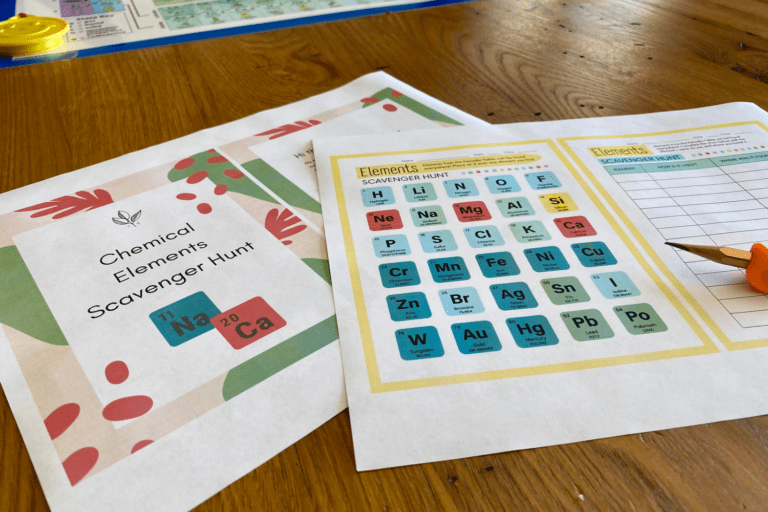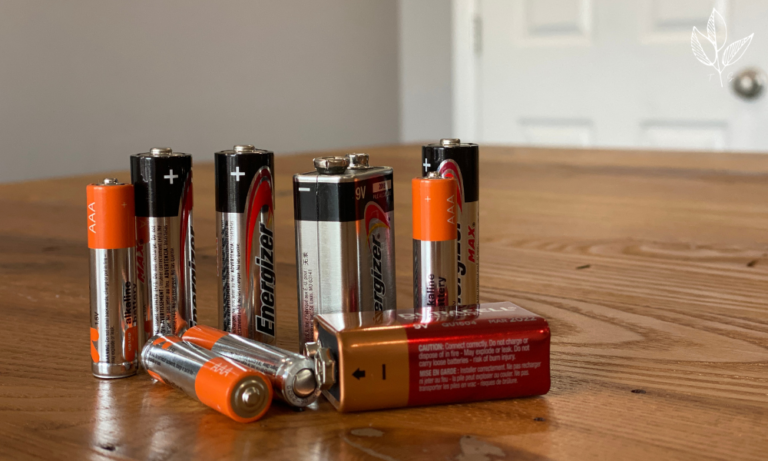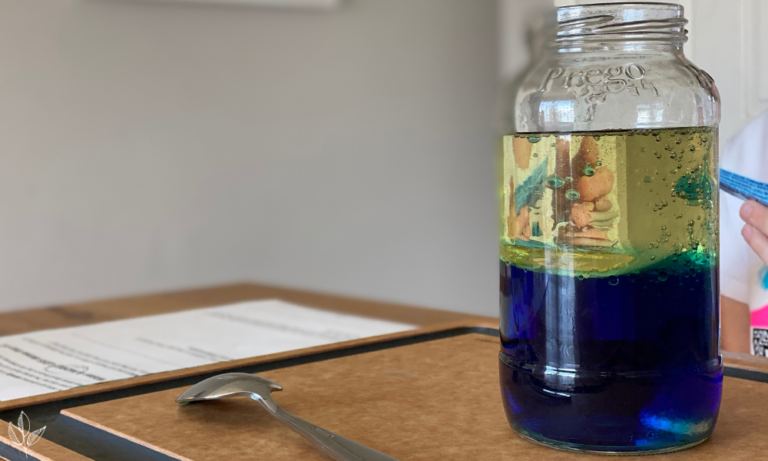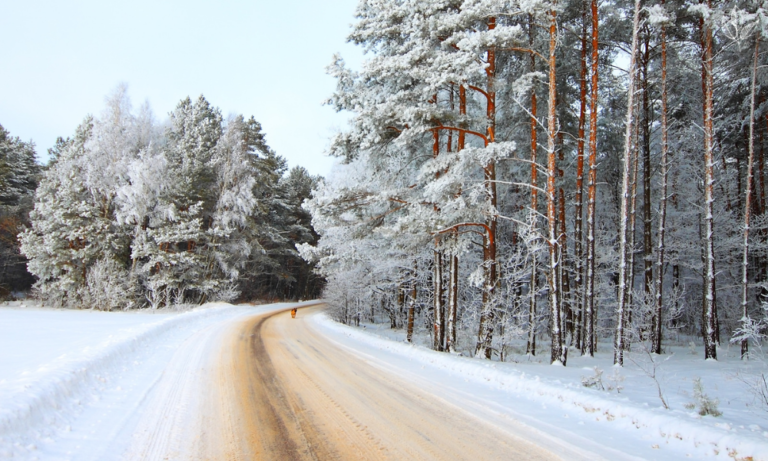10 Easy and Sustainable Summer Science Activities for Kids
Looking for some easy, hands-on activities to engage your child and their friends at the next summer sleepover or playdate? Check out my ten engaging sustainability and science activities for kids!
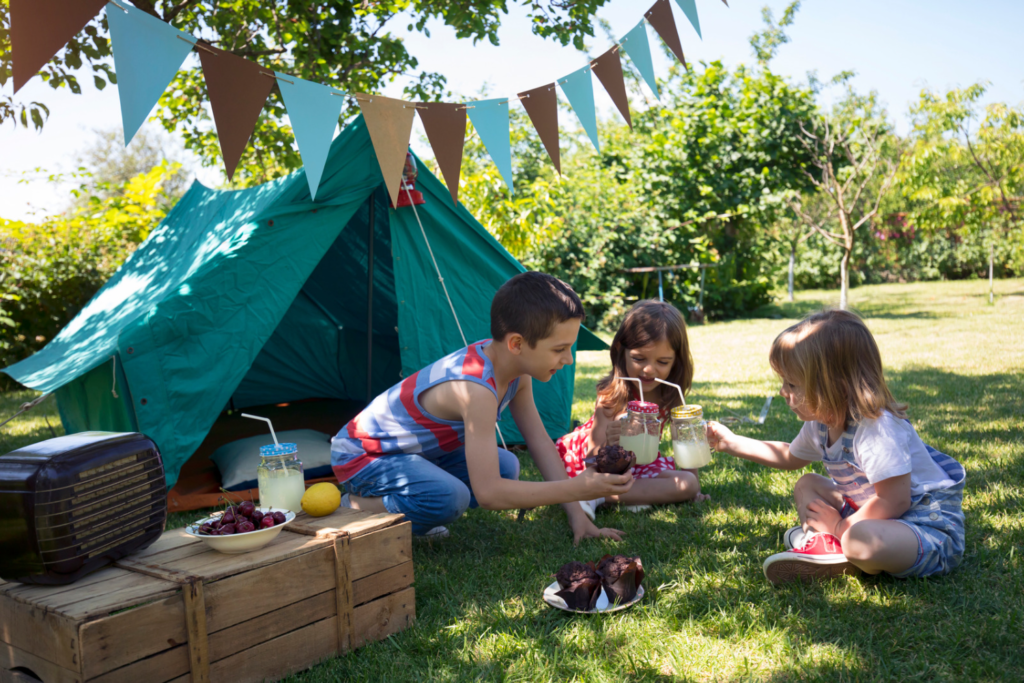
Summer sleepovers and play dates are an absolute delight for kids, bringing a sense of adventure, laughter, and camaraderie. As the warm sun sets on long summer days, children eagerly anticipate the freedom of staying up late, sharing stories, and creating cherished memories with their closest friends. These gatherings hold a special place in their hearts, weaving a tapestry of laughter, whispers, and excitement.
Summer play dates and sleepovers are also a time for learning and growth. With no distractions from daily routines, kids share their interests, talents, and dreams, encouraging each other to pursue their passions. Whether it’s stargazing, playing board games, creating art projects, or conducting simple science experiments, these meet-ups become an opportunity for children to expand their horizons and discover hidden talents they might not have known they possessed.
Creating a slumber party or play date atmosphere that encourages exploration and fun can be as simple as gathering up supplies you already own and allowing your young guests to repurpose them for science activities and experiments!
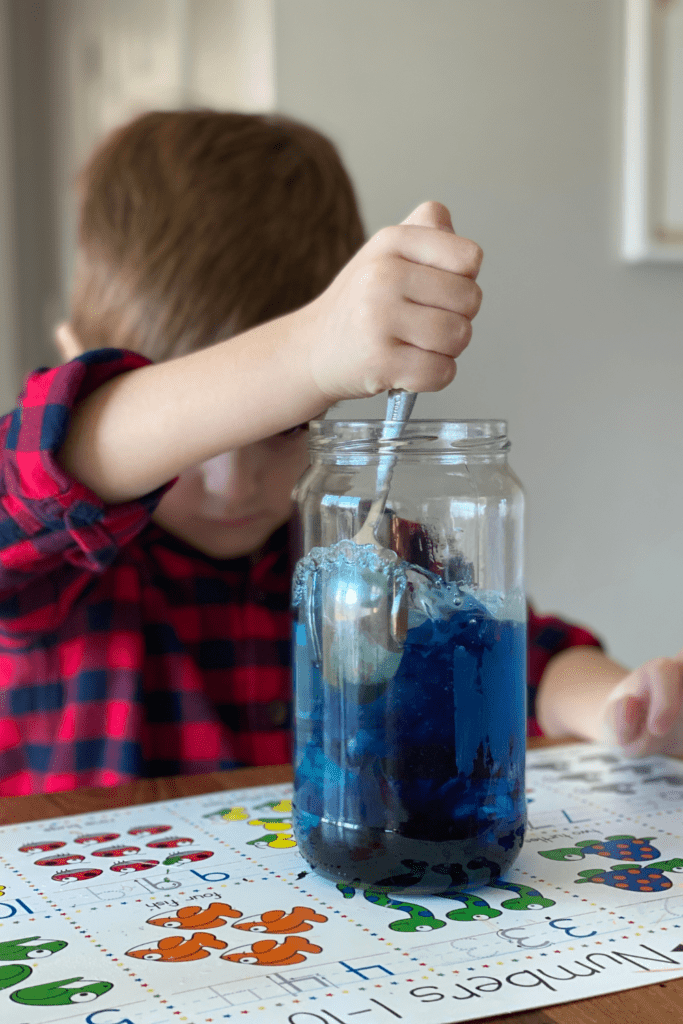
The Importance of Introducing Kids to Sustainability
Introducing sustainability to kids is of utmost importance as it empowers the next generation with the knowledge and values needed to build a more sustainable and environmentally conscious future. Here are some key reasons why teaching kids about sustainability is crucial:
- Environmental Awareness: Introducing sustainability from an early age helps kids develop a deep understanding of the natural world and its interconnected systems. It fosters a sense of responsibility towards the environment and encourages them to protect and preserve it for future generations.
- Caring for Nature: When kids learn about sustainability, they develop empathy towards plants, animals, and ecosystems. This caring attitude encourages them to make choices that reduce harm to the environment and wildlife, promoting a more compassionate society.
- Critical Thinking Skills: Learning about sustainability encourages kids to think critically about the consequences of their actions. They can consider the environmental impact of their choices, encouraging them to make informed decisions that align with their values.
- Conservation and Resource Management: Understanding sustainability teaches kids about the finite nature of natural resources and the importance of conserving them. It empowers them to be mindful of their consumption and advocate for responsible resource management.
- Climate Change Awareness: Teaching kids about sustainability helps them grasp the concept of climate change and its implications for the planet. It encourages them to be proactive in addressing environmental challenges and advocating for sustainable solutions.
- Empowerment and Action: When kids learn about sustainability, they understand that their actions matter. It empowers them to believe in their ability to make a positive impact on the world, fostering a sense of agency and responsibility.
- Building Sustainable Habits: Introducing sustainability early on lays the foundation for lifelong sustainable habits. Kids who are aware of the environment are more likely to adopt eco-friendly practices, such as recycling, conserving energy, and reducing waste.
- Global Citizenship: Sustainability education promotes global citizenship by encouraging kids to think beyond their immediate surroundings. They learn about the interconnectedness of the world and how their choices can influence global issues.
- Innovation and Problem-Solving: Sustainability challenges offer opportunities for creative problem-solving and innovation. By exposing kids to sustainability concepts, we inspire them to think outside the box and develop innovative solutions for a greener future.
- Legacy for Future Generations: Ultimately, introducing sustainability to kids is about leaving a positive legacy for future generations. By instilling environmental stewardship and sustainability values, we equip them with the tools to continue building a better, more sustainable world.
Introducing sustainability to kids is vital for nurturing environmentally responsible and compassionate individuals who can contribute to a healthier planet. By educating and empowering the next generation, we can create a collective force of change-makers, driving us towards a more sustainable and thriving future.
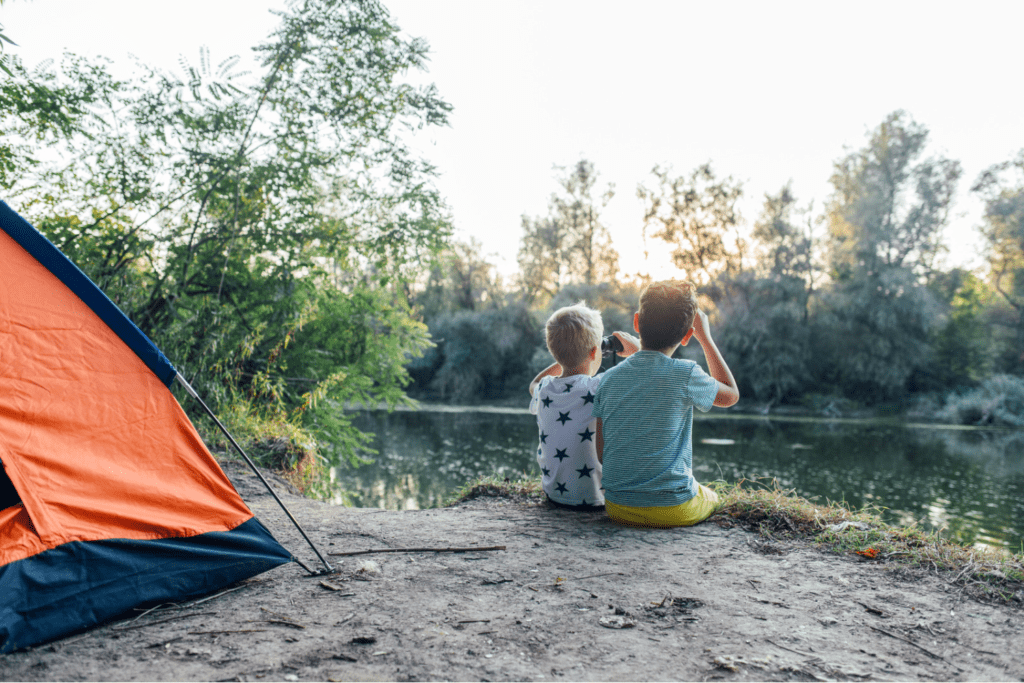
10 Sustainable Summer Science Activities
For a simple science activity to be sustainable, it means that it can be completed without depleting or causing significant harm to the resources or ecosystems involved. I’ve designed the following activities with a “use-what-you-have” mindset. Sustainability is often associated with the concept of “meeting the needs of the present without compromising the ability of future generations to meet their own needs.” To me, that translates to finding multiple uses for materials and resources that are easily accessible.
Here are ten sustainable summer sleepover science activities that are budget-friendly and packed with hands-on exploration.
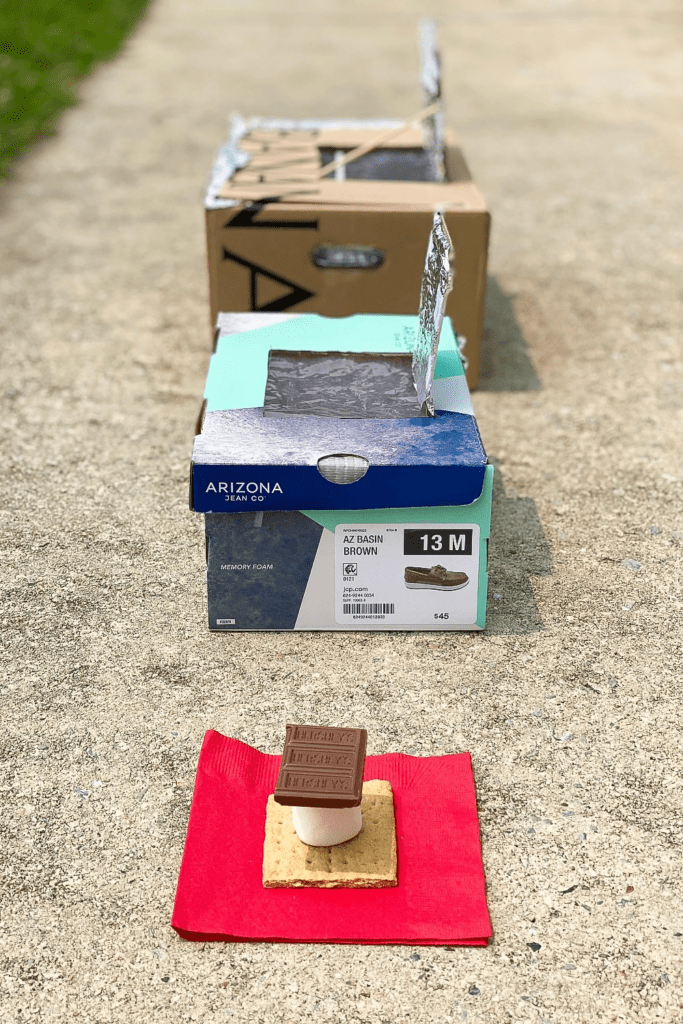
1. Solar Powered S’Mores
Summer sleepovers aren’t complete without the deliciousness of marshmellows and chocolate sandwiched between graham crackers. What if you could make these iconic s’more treats without having to light a fire?
Imagine a group of enthusiastic kids gathered around, armed with cardboard boxes, aluminum foil, plastic wrap, and some s’mores ingredients. Their eyes light up with excitement as they embark on an adventure to create their very own solar ovens. The goal? To harness the power of the sun and bake delicious s’mores without any conventional heat source! Get the details on how to create solar ovens here!
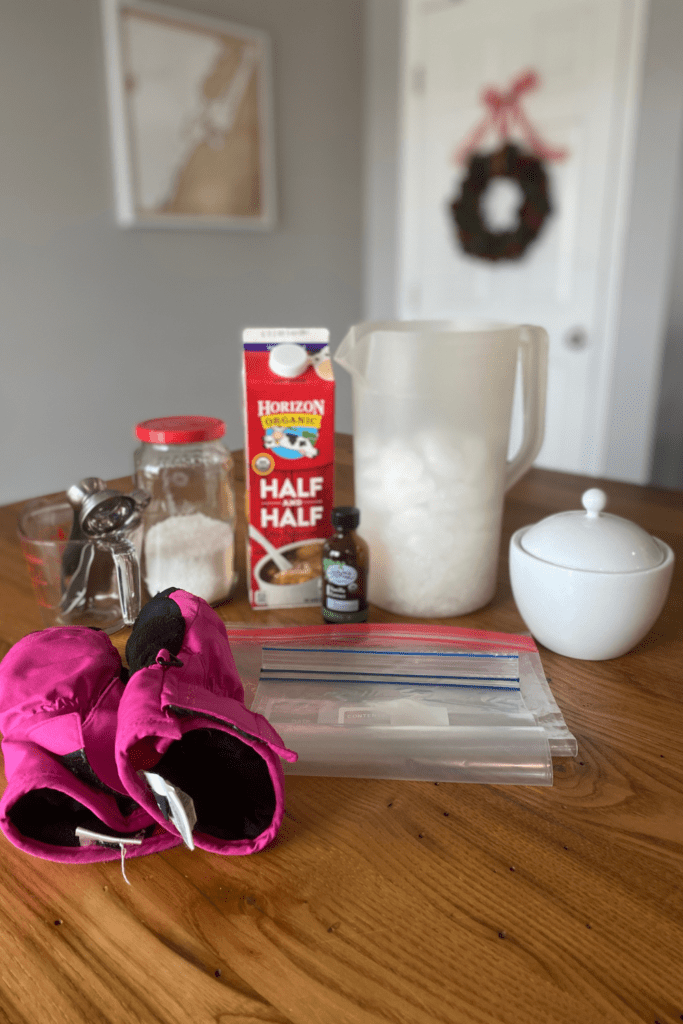
2. Homemade Ice Cream in a Bag
Who doesn’t love ice cream? Now, imagine being able to make your very own creamy, delicious treat while learning some cool science along the way. Making ice cream in a bag is a fantastic hands-on activity that brings joy, excitement, and learning together. Click here to learn how to make the ice cream magic happen at your next slumber party or play date.
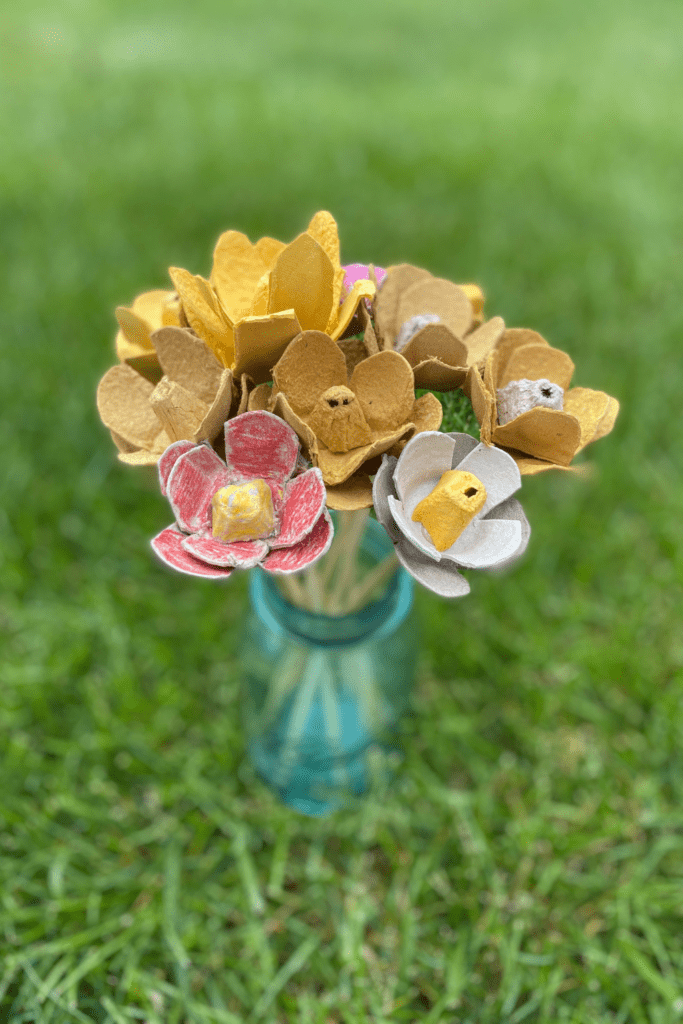
3. Egg Carton Flower Bouquets
Picture a group of giggling girls crafting flowers out of egg cartons! Making egg carton flowers is a fun, educational, and environmentally friendly activity that sparks creativity and fosters an appreciation for reusing everyday household items. It’s an enjoyable way for kids to learn, express themselves, and create beautiful decorations that can be taken home to remember the epic summer sleepover! Get the simple step-by-step instructions here.
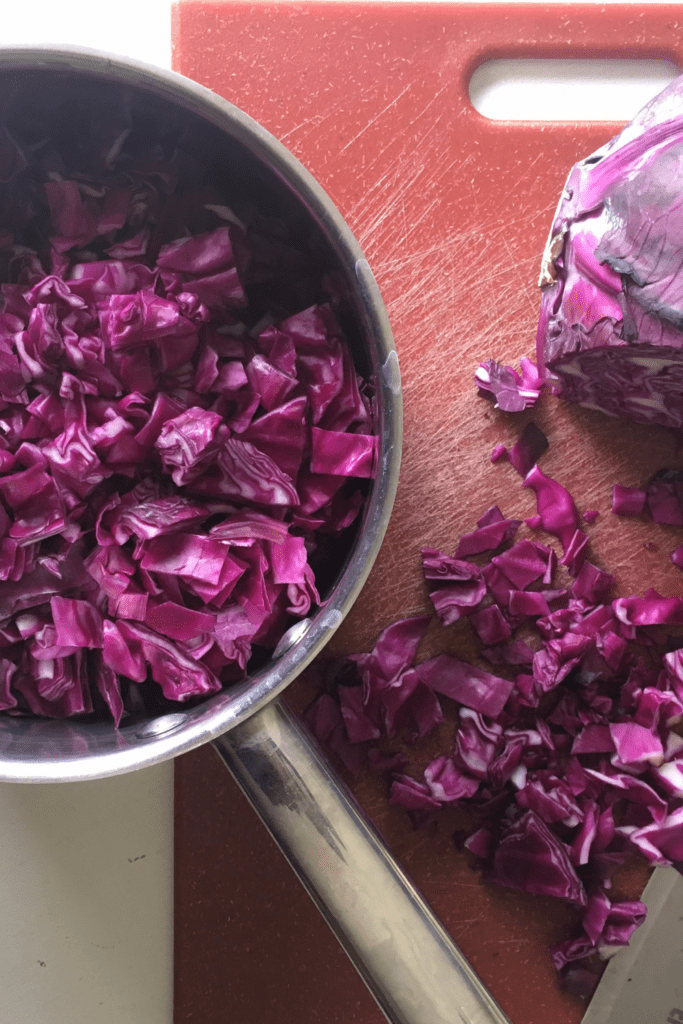
4. “Magical” Lemonade
Step into a world where chemistry and imagination collide to create a mesmerizing potion that changes colors right before your eyes. Get ready to embark on a whimsical journey that combines the ordinary with the extraordinary, as your young scientists explore the wonders of cabbage juice and its mystical effects on lemonade.
Picture this: a group of curious kids gathered around a table, a head of purple cabbage, lemons, sugar, and water spread out before them. What could this ordinary vegetable possibly have in store for them? Read on to learn the simple science behind cabbage juice magic!
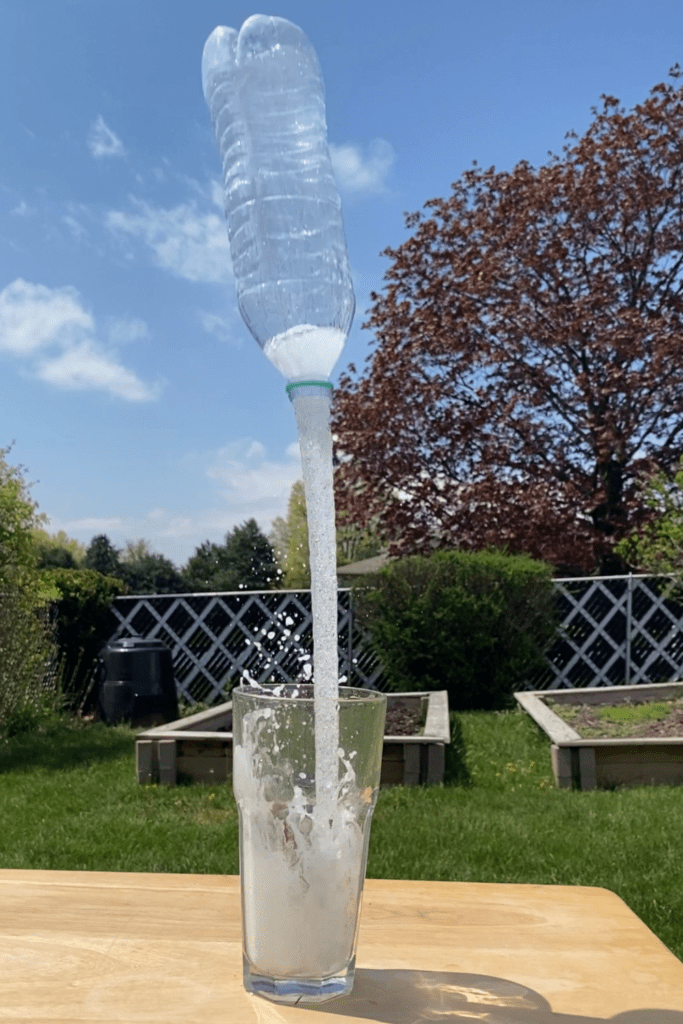
5. Alka-Seltzer Powered Rockets
Get ready for an explosive adventure of science and fun as you explore the thrilling world of Alka-Seltzer powered rockets made from plastic water bottles! Unleash your inner rocket scientist and embark on a journey filled with fizz, excitement, and soaring heights. With their rocket scientist hats on, your learners will start experimenting with various water amounts, Alka-Seltzer tablet sizes, and fin designs to optimize their launches. It’s a hands-on lesson in trial and error, fostering innovation and critical thinking.
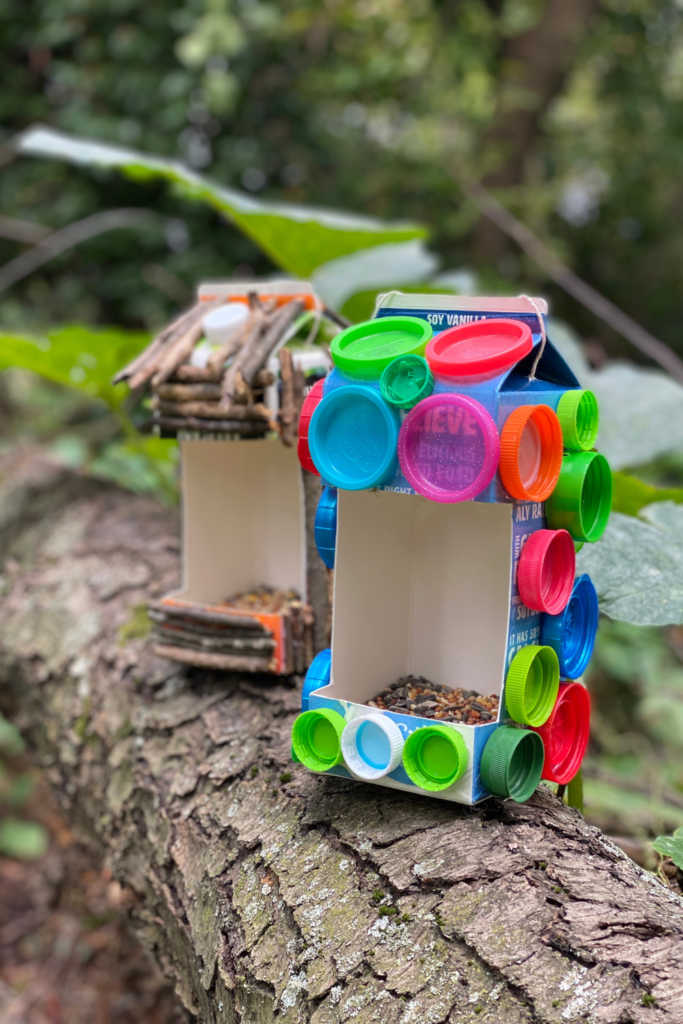
6. Drink Carton Bird Feeders
Transform humble drink cartons into delightful bird feeders, providing a tasty treat for your winged visitors while encouraging recycling and caring for other organisms that inhabit our environment. With each step of the crafting process, from cutting and decorating the cartons to filling them with nourishing birdseed, watch as a sense of fulfillment and joy takes flight in your young crafters. Get the step-by-step tutorial, complete with free printable instructions, here!
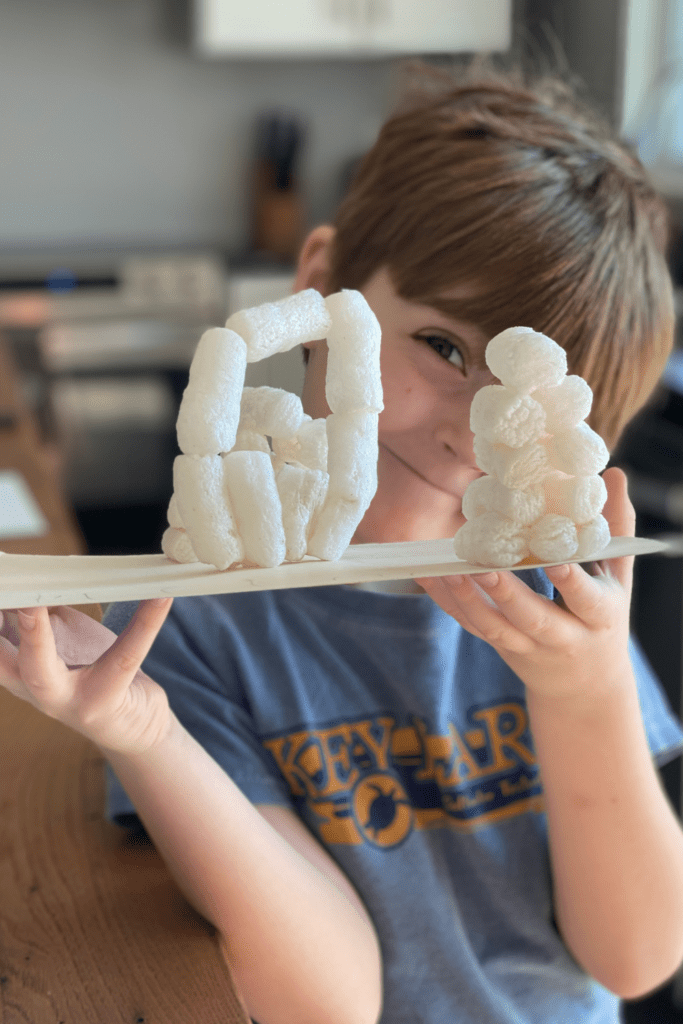
7. Compostable Packing Peanut Building Challenge
Armed with piles of compostable packing peanuts of various shapes and sizes, your children will love creating three dimensional structures with these starch-based building blocks! These biodegradable wonders are not only gentle on the environment but also a versatile material for any young architect or engineer. Check out the details of this fun packing peanut building challenge here.
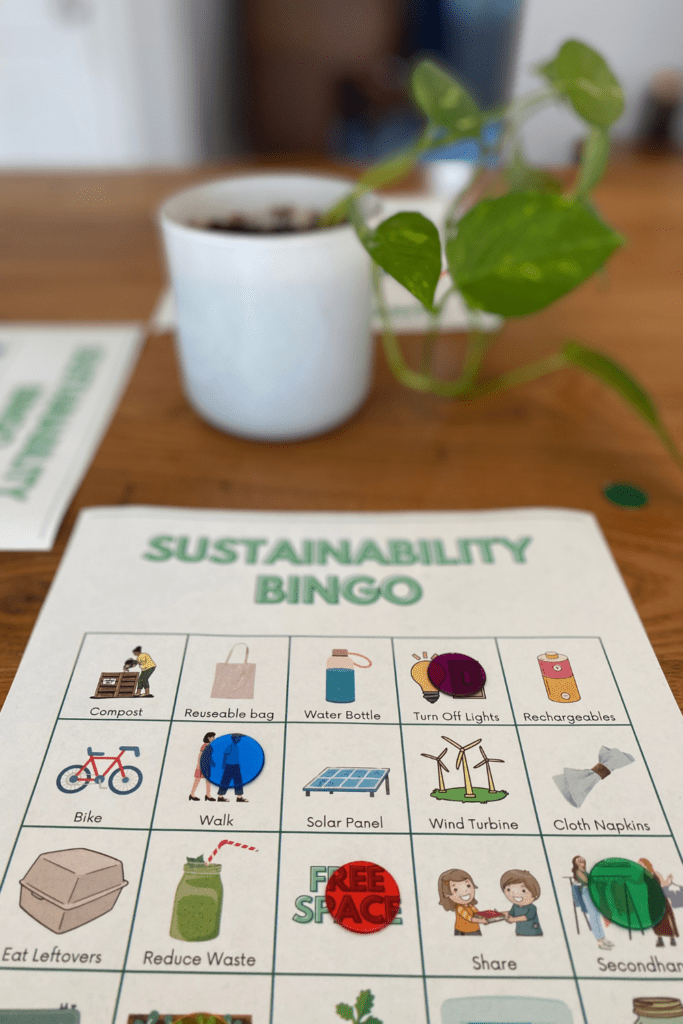
8. Sustainability Bingo
Introduce your young guests to sustainable living habits through the classic game of bingo! Composting, eating leftovers, reducing energy consumption, and planting a garden are just some of the 30+ examples provided in this fun family favorite. This free printable includes 30 different game boards and two sheets of calling cards and is perfect for summer slumber parties and play dates for kids of all ages.
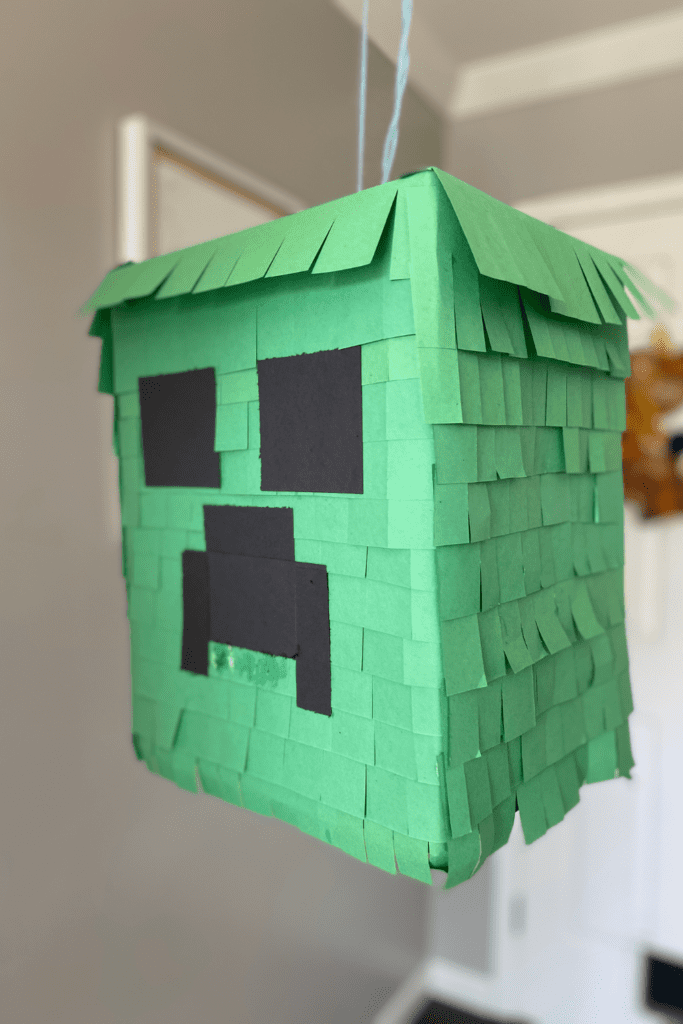
9. DIY Piñata
Every good play date or sleepover needs an engaging game. Why not make a simple and inexpensive piñata? Ditch the expensive store-bought piñatas and make your own super easy and nearly free piñata out of items you already have! I’ve created simple step-by-step instructions on how to make one, as well as three free piñata filler ideas to save even more money and reduce waste. It’s great for your budget, your guests, and the planet.
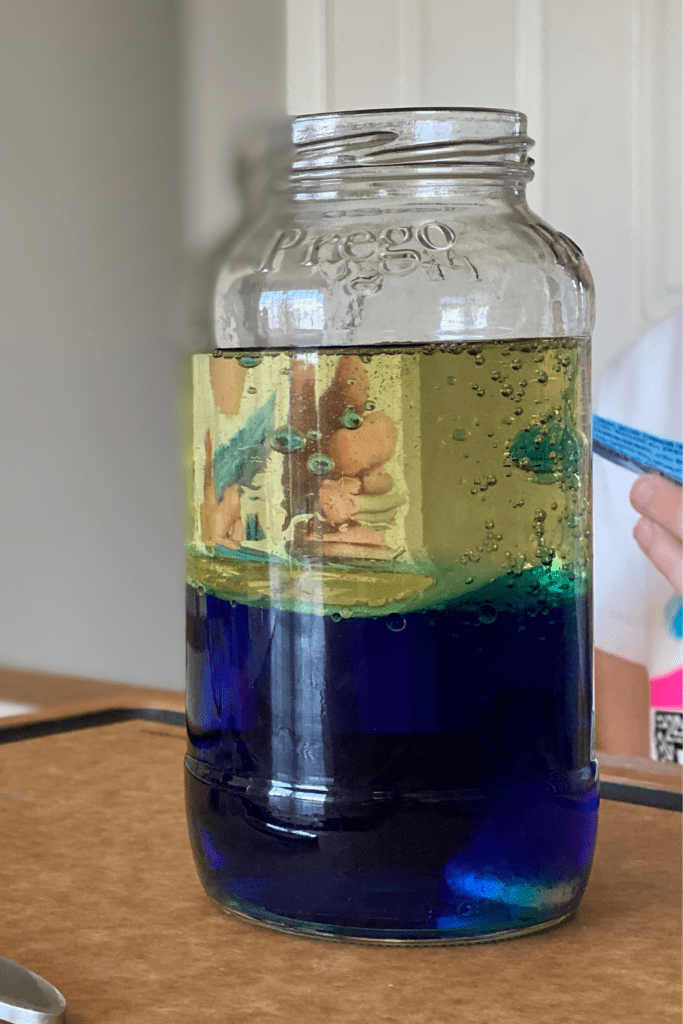
10. Lava Lamps
If you’ve got oil, water, food coloring, and Alka-Seltzer tablets, then you’ve got the materials needed to make homemade lava lamps! Repurpose some clear glass jars for this fun summer science experiment that will address density and chemical reactions while wowing your learners with nearly-endless bubbles. Get the details on how to make lava lamps here.
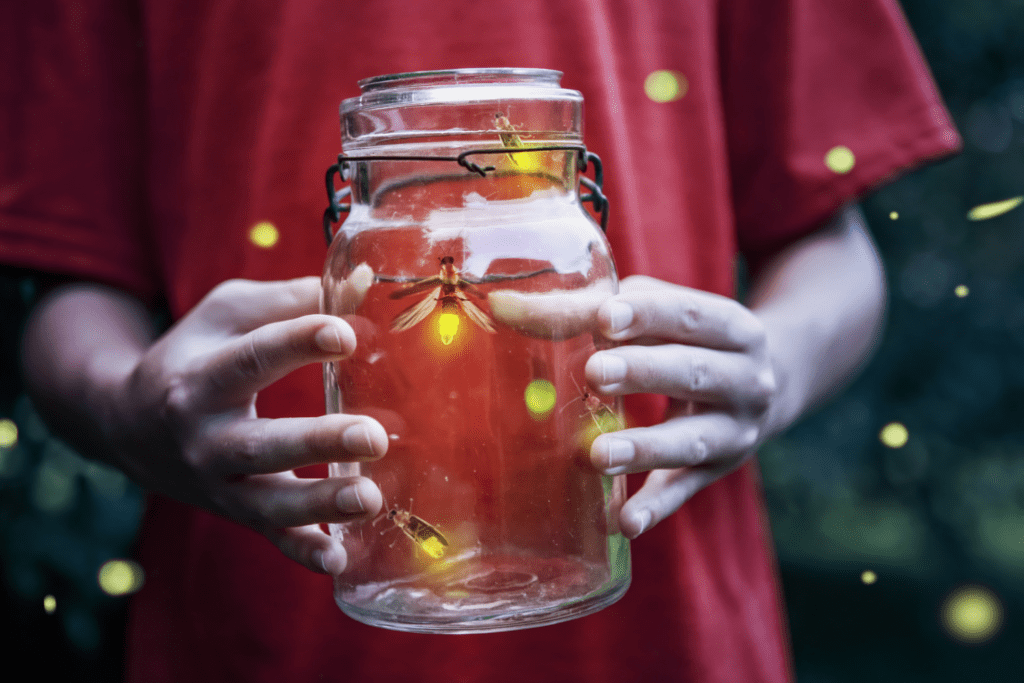
Avoid “Summer Slide” with Sustainability and Science Activities
Engaging kids in science over the summer break is a valuable and enriching experience that offers numerous benefits. Firstly, it helps prevent the “summer slide,” a phenomenon where students may lose some of their academic progress during extended breaks from school. By actively participating in science activities, kids keep their minds engaged and continue to learn, ensuring a smoother transition back to school in the fall.
Secondly, science exploration fosters curiosity and a love for learning. Hands-on experiments and scientific discoveries create a sense of wonder and excitement, making learning a fun and enjoyable experience. This enthusiasm for science can lead to a lifelong passion for the subject and even inspire future careers in STEM fields.
Furthermore, engaging in science activities during the summer break encourages critical thinking and problem-solving skills. Children are encouraged to observe, ask questions, and seek answers through experimentation, which enhances their analytical abilities and fosters a growth mindset.
Science education empowers kids to understand the world around them and make informed decisions. Learning about environmental issues, sustainability, and health sciences equips them with the knowledge needed to be responsible global citizens, caring for the planet and making positive contributions to society.
Engaging in science over the summer break bridges the gap between school and real-life applications. Kids can see the relevance of what they learn in the classroom to everyday situations, making their education more meaningful and applicable. By making science fun, relevant, and accessible, we inspire the next generation of scientists, innovators, and informed global citizens, setting them on a path to a brighter and more knowledgeable future.

